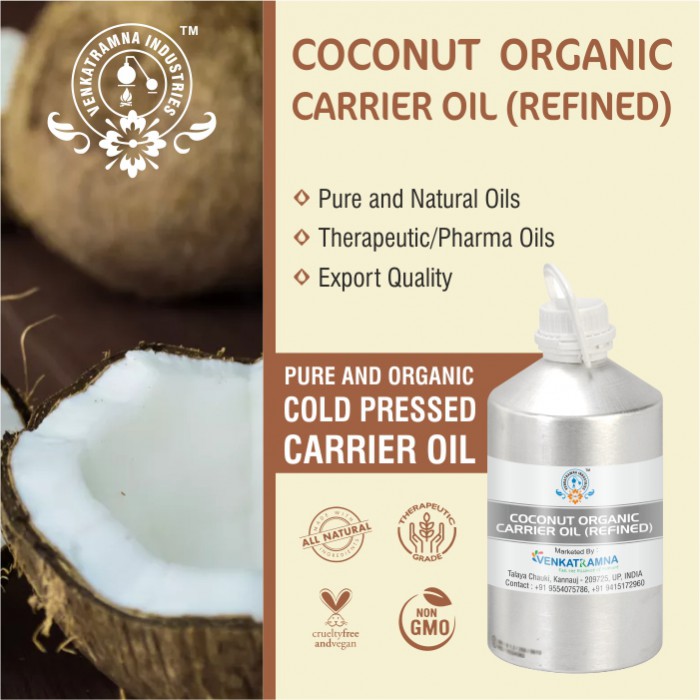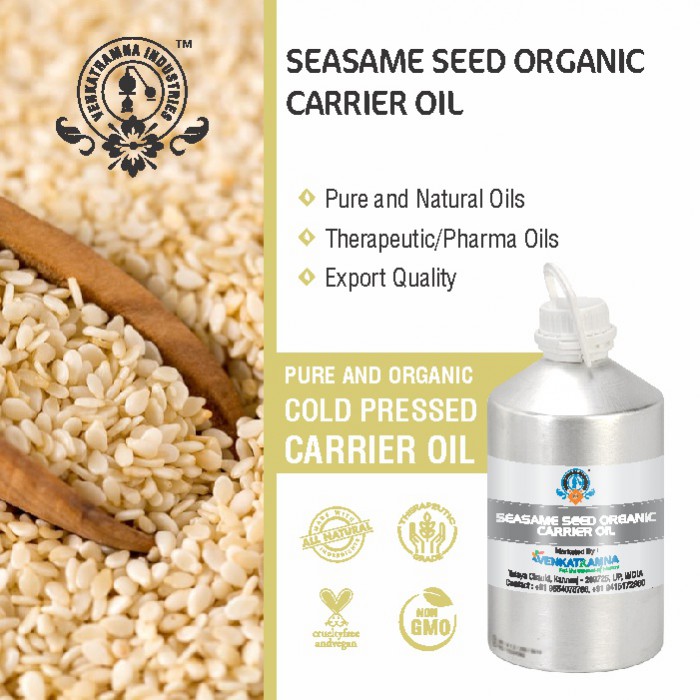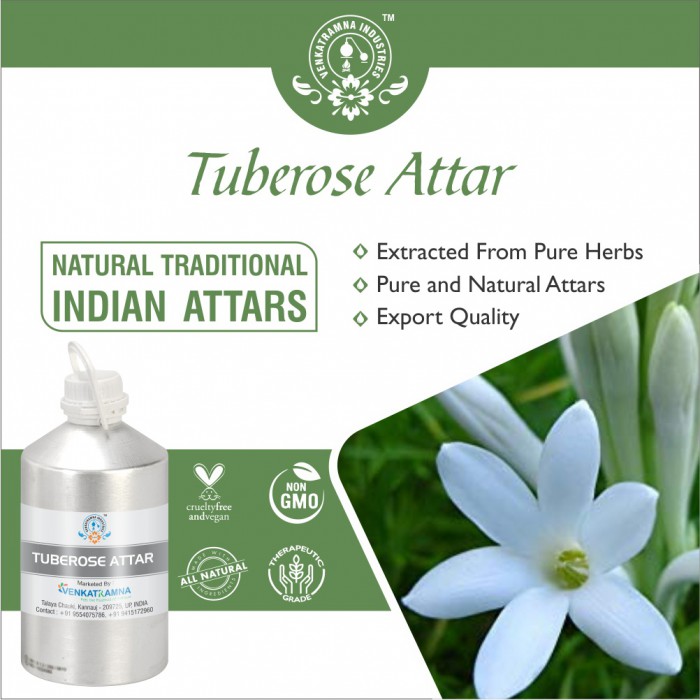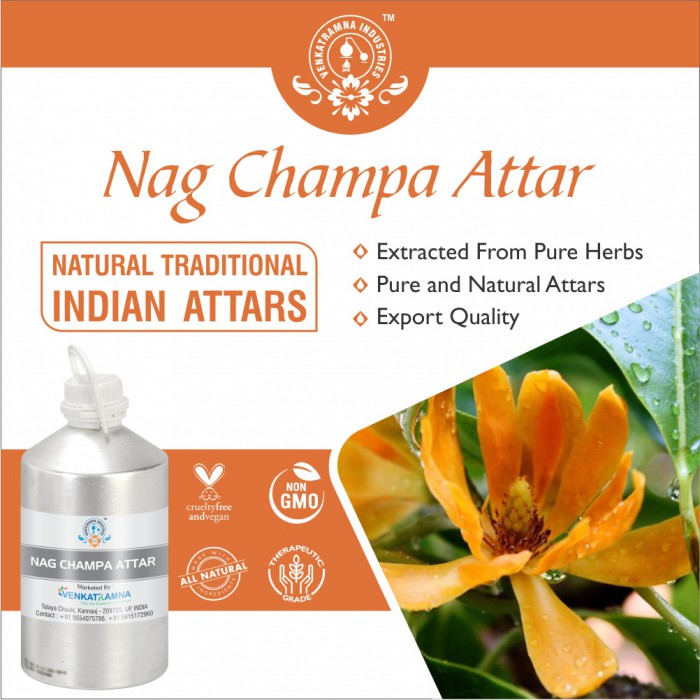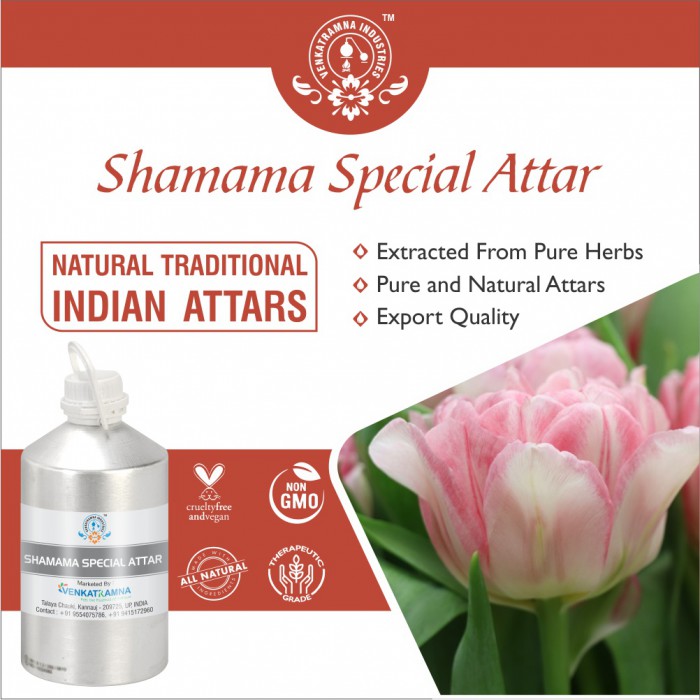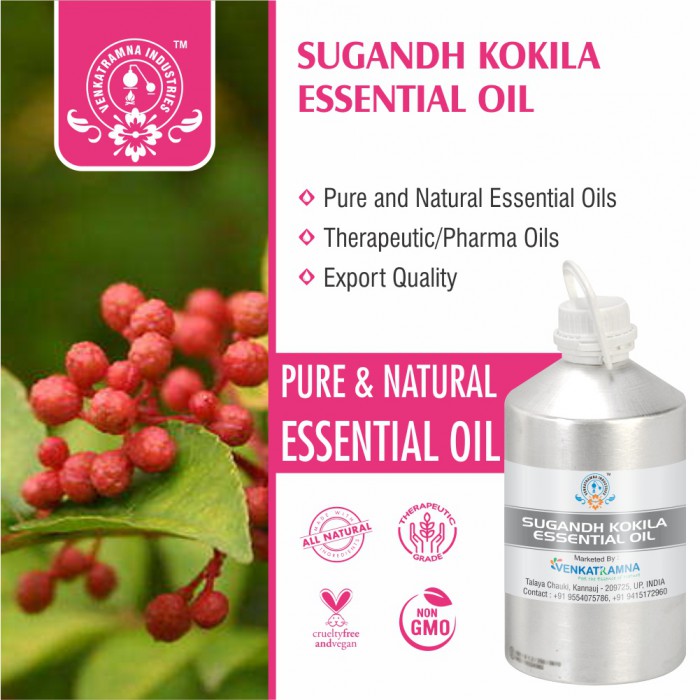Botanical Name: Citrus bergamia Common name: Rectified bergamot, furanocoumarin-free b Read More
Botanical Name: |
Citrus bergamia |
|
Common name: |
Rectified bergamot, furanocoumarin-free bergamot. |
|
Plant family: |
Rutaceae |
|
Genus: |
Citrus |
|
Appearance/Color: |
A thin, light yellowish green to yellowish
brown liquid. |
|
Odor: |
The aroma of this essential oil is citrus but sweet
and fruit. It has a warm and spicy floral quality that remains the fragrance
of neroli. |
|
Blends With: |
blends with clary sage, black
pepper, mandarin, orange, geranium, jasmine, rosemary, frankincense cypress,
vetiver, Ylang-Ylang, nutmeg, sandalwood. |
|
Origin |
Italy |
Bergamot
essential oil is 100% pure and fails under the cold-pressed essential oil
category. It is produced with the extracts of cells of the rind of the bergamot
orange fruit. Scientifically, this this product is called Citrus bergamia.
Bergamot essential oil is widely used as the favorite aromatherapy medicine.
The complete range of conditions or methods of use are beyond our control therefore we do not assume any responsibility and expressly disclaim any liability for any use of this product. Information contained herein is believed to be true and accurate however, all statements or suggestions are made without warranty, expressed or implied, regarding accuracy of the information, the hazards connected with the use of the material or the results to be obtained from the use thereof. Compliance with all applicable federal, state, and local laws and local regulations remains the responsibility of the user.
The FDA has not evaluated the statements on this website. No claims are made by Venkatramna Industries as to the medicinal value of any products from vriaroma.com or by us. The information presented here is for educating our customers about the traditional uses of essential oils and is not intended to diagnose, treat, cure, or prevent any disease. You are responsible for understanding the safe application of these products. If you have any questions, please call or email us for further information.
As per NAHA guidelines, New Directions Aromatics (NDA) does not recommend the ingestion of essential oils. It is imperative to consult a medical practitioner before using Essential Oils for therapeutic purposes. Pregnant and nursing women and those taking prescription drugs are especially advised not to use this product without the medical advice of a physician. The oil should always be stored in an area that is inaccessible to children, especially those under the age of 7.
This
essential oil has various health benefits including the ability to uplift
moods, boosts energy and offers quick relieve from anxiety and stress. Adding
more benefits, it has the properties that claim analgesic, antibacterial,
antispasmodic, disinfectant and soothing effects.
May
help to ease congestion, coughs and colds, and some infections. Also, can aid digestive system. When diluted
in a carrier oil, it may be beneficial for oily skin and acne prone skin, minor
skin irritations like eczema and psoriasis, cold sores, as well as minor wounds
like cuts, scratches and abrasions.
It’s
refreshing and clean citrus smell is believed to be used as a powerful source
to calm the mind and soul. Due to its purity and skin-friendly attribute, it is
commonly used for massage therapy and baths to provide claiming effects to the
users. Its ability to uplift moods or give an energy boost and reliving stress
and antibacterial, analgesic, antiseptic, anti-spasmodic, and Soothing effects.
·
Improves
blood circulation
·
Prevents
infections
·
Acts
as relaxant and seductive
·
Reduces
pain
·
Helps
in digestion
·
Removes
bad odor
·
Aids
in wound healing
·
Lowers
fever effects
·
Relieves
sudden spasms
·
Repels
pests and germs
|
S.No |
Key Constituents |
Strength (%) |
|
1 |
Linalyl acetate |
18.0-28.0 |
|
2 |
(p)-Limonene |
28.0-45.0 |
|
3 |
Linalool |
4.0-20.0 |
|
4 |
b-Pinene |
4.0-11.0 |
|
5 |
g-terpinene |
3.0-12.0 |
|
6 |
a-pinene |
1.0-1.8 |
|
7 |
Non-volatile compounds |
|
|
8 |
Bergamottin |
0-1.625 |
|
9 |
Citropten |
0-0.0052 |
|
10 |
Bergapten |
0-0.009 |
|
11 |
5-Geranyloxy-7-methoxycoumarin |
0-0.19 |
Bergamot
essential oil has bergaptene which should be protected from sunlight because it
gets poisonous when exposed to sunlight. It should be stored in air-light dark
bottles and in dark places. A user should avoid direct sun exposure after
applying this over the skin until it gets completely absorbed into the skin.
Safety summary
·
Hazards: Phototoxic (moderate risk); may
be photocarcinogenic.
·
Contraindications (dermal): If applied to
the skin at over maximum use level, skin must not be exposed to sunlight or
sunbed rays for 12 hours.
·
Cautions: Old or oxidized oils should be
avoided.
·
Maximum dermal use level 0.4% to avoid
phototoxicity.
Because of its limonene content,
oxidation of bergamot oil should be avoided by storage in a dark, airtight
container in a refrigerator. The addition of an antioxidant to preparations
containing it is recommended.
Regulatory guidelines
Has GRAS status. IFRA recommends
that, for application to areas of skin exposed to sunshine, bergamot oil be
limited to a maximum of 0.4% in the final product, except for bath
preparations, soaps and other wash-off products. In Europe, essential oils
containing furanocoumarins must be used so that the total level of bergapten
will not exceed.
Organ-specific effects
·
Adverse skin reactions: No irritation was
observed when 2% bergamot oil was patch tested in 1,200 dermatitis patients. In
a 48-hour occlusive patch test on 50 Italian volunteers, the highest
concentration of bergamot oil producing no adverse reaction was 30%. When
similarly tested at 10%, it produced three reactions in 590 eczema patients.
Tested at 30% on 25 volunteers, bergamot oil was not sensitizing. Of 1,200
dermatitis patients patch tested, two were sensitive to 2% bergamot oil. In a
study of 200 consecutive dermatitis patients, three were sensitive to 2%
bergamot oil on patch testing. Autoxidation products of (þ)-limonene can cause
skin sensitization.
Systemic effects
·
Acute toxicity: No information found for
unrectified bergamot oil, though rectified bergamot oil is distinctly nontoxic.
·
Carcinogenic/anticarcinogenic potential:
Bergamot oil was not mutagenic in either a Bacillus subtilis rec-assay or an
Ames test. Bergamot terpenes induced glutathione S-transferase activity to more
than 2.5 times control level in mouse tissues. Bergamot oil is cytotoxic to
neuroblastoma cells. Bergamot oil inhibited formation of the carcinogen NDMA in
vitro by more than 70%. (þ)-Limonene displays anticarcinogenic activity.
There is a need to raise public
awareness to the phototoxic dangers of bergamot oil by adequate labeling and
additional information. Assuming a maximum bergapten content of 0.33%, and to
comply with the 15 ppm (0.0015%) SCCNFP guideline for bergapten, expressed
bergamot oil should not be used at more than 0.45%, which correlates with the
IFRA recommended maximum use level of 0.4%. A treated oil, sometimes rectified
by distillation, is obtainable as bergapten-free
·
Ecotoxicity: very toxic to aquatic environment.
·
Bioaccumulation: No data available
·
Mobility in soil: No data available
·
Persistence and degradability: No data available
·
Biodegradation: No data available
·
PBT and vPvB assessment: No data available


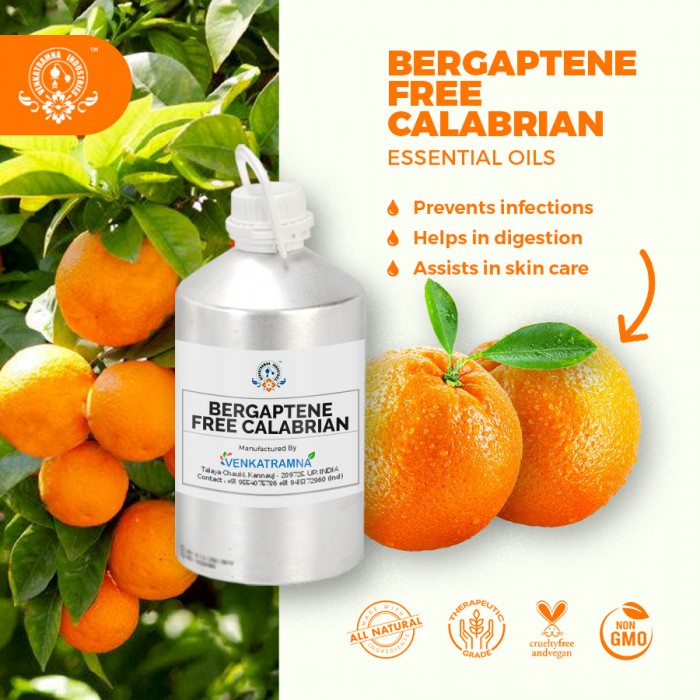
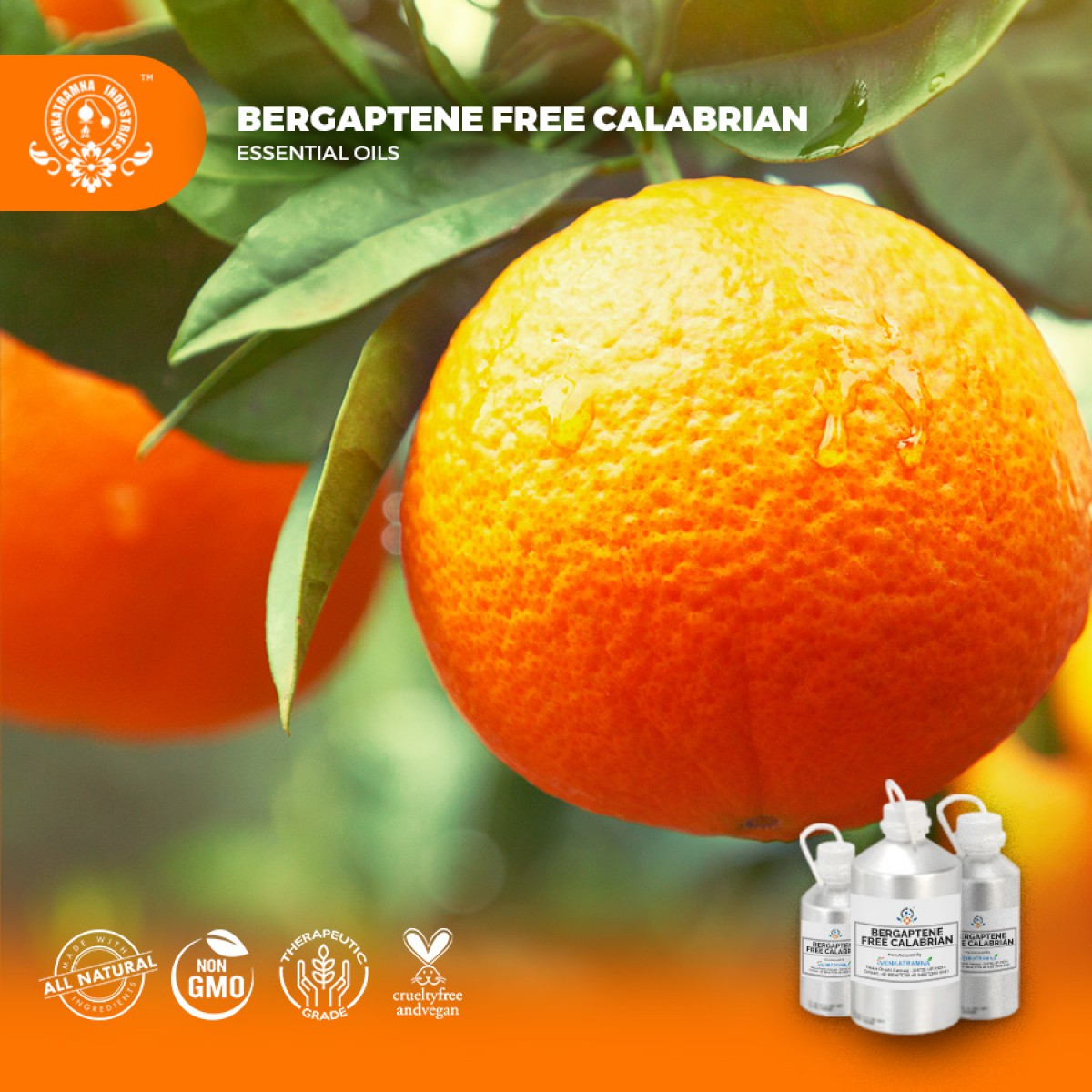
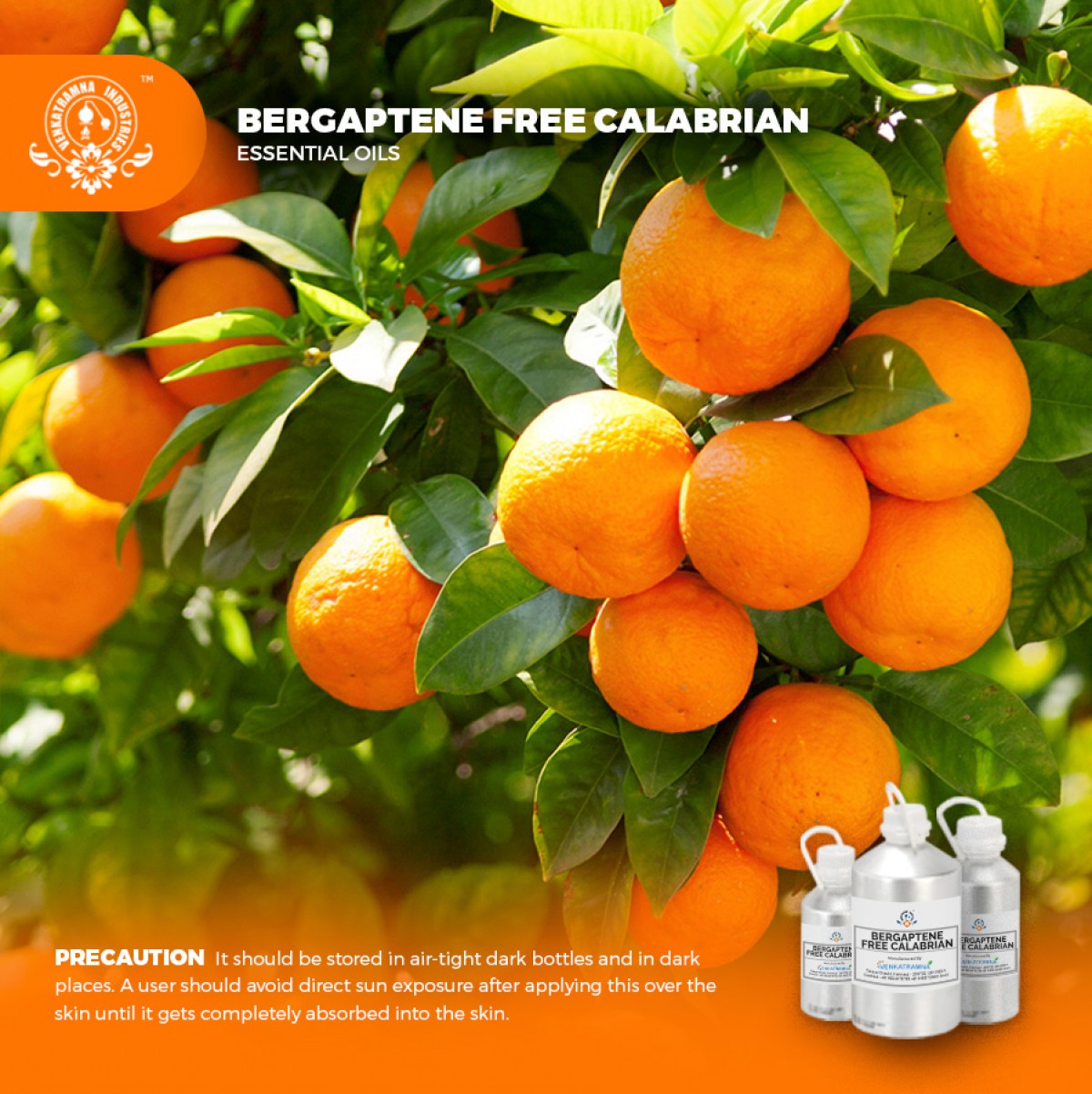
 MSDS-citrus3.pdf
MSDS-citrus3.pdf